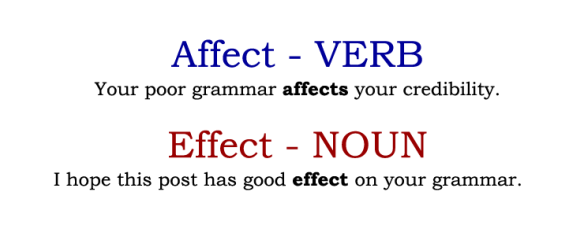It’s 2am and your paper is due at 9am. Your eyesight is blurry from looking at your computer screen. All you want to do is finish and go to sleep. So you turn your paper in without proofreading.
Then you get your paper back: C+. C+? You look through your professor’s edits and come across this:
“The principle point of this paper is to explore the affects of whether on gorilla warfare in Asian.”
Don’t let this happen to you. Use this checklist to help avoid 10 common student writing errors.
1. Missing a comma
Commas and periods are the two most used punctuation marks, but commas seem to cause the most confusion. Are you using commas correctly? Have you written any sentences containing items in a series? When three or more items appear in a series, they should be separated from one another using commas. (The last comma is optional, though.)
Example: We’re out of milk, eggs, and cheese.
Bonus tip: Always use commas to set off names or titles of a person when directly addressing someone.
 2. No comma after an introductory phrase
2. No comma after an introductory phrase
An introductory phrase provides background information and is usually followed by a comma.
Incorrect – While I was studying my roommate watched TV.
Correct – While I was studying, my roommate watched TV.
3. Using the wrong word
Whether/weather. Affect/effect. To/too. While all are spelled correctly, they each mean different things. Watch your words and don’t rely on spell check alone. Spell check may not see words which are misused, but spelled correctly!
4. Run-on sentence
Run-on sentences occur when a sentence contains two complete thoughts without the necessary punctuation to link them. Run-on sentences should be divided into separate sentences or joined by adding words or punctuation.
Example: Mr. Smith sent all of his kids to college, however, he has sacrificed his health working to pay for it.
Where the first comma appears, we should have used a period and started a new sentence.
5. Watch your verb tenses
All the verb tenses should work together in harmony.

6. Pronoun shift
This occurs when an author switches pronouns for no apparent reason. I > you > one
Incorrect – If you eat sensibly and watch your calories, most people will be able to maintain their weight.
Correct – If you eat sensibly and watch your calories, you should be able to maintain your weight.
7. Spelling Mistakes
Mistakes happen, but make sure you stop and review your writing for errors. Having someone else review your writing will also help ensure that all mistakes get corrected.
8. Its vs It’s
For many people, this is one of the trickiest grammar rules. Use its to mean belonging to it; use it’s only when you mean it is or it has.
It’s is a contraction for it is or it has. “It’s almost the weekend.” Its indicates possessive. “Every dog has its day.”
Its’ is never correct. Ever.
9. Double Negatives
You know the old adage ‘two wrongs don’t make a right?’ Well two negatives do make a positive.
Incorrect: I cannot hardly wait for the semester to be over.
Correct: I can hardly wait for the semester to be over.
10. Mechanical error with a quotation
“I wish we were at the beach”, Elizabeth says.
The comma should be placed inside the quotation marks.
This list has some brief example and explanations for you to use as reminders while you edit papers. Have a paper you’re struggling to format? Or just want another set of eyes to help you proofread? Connect with a great writing tutor now.








